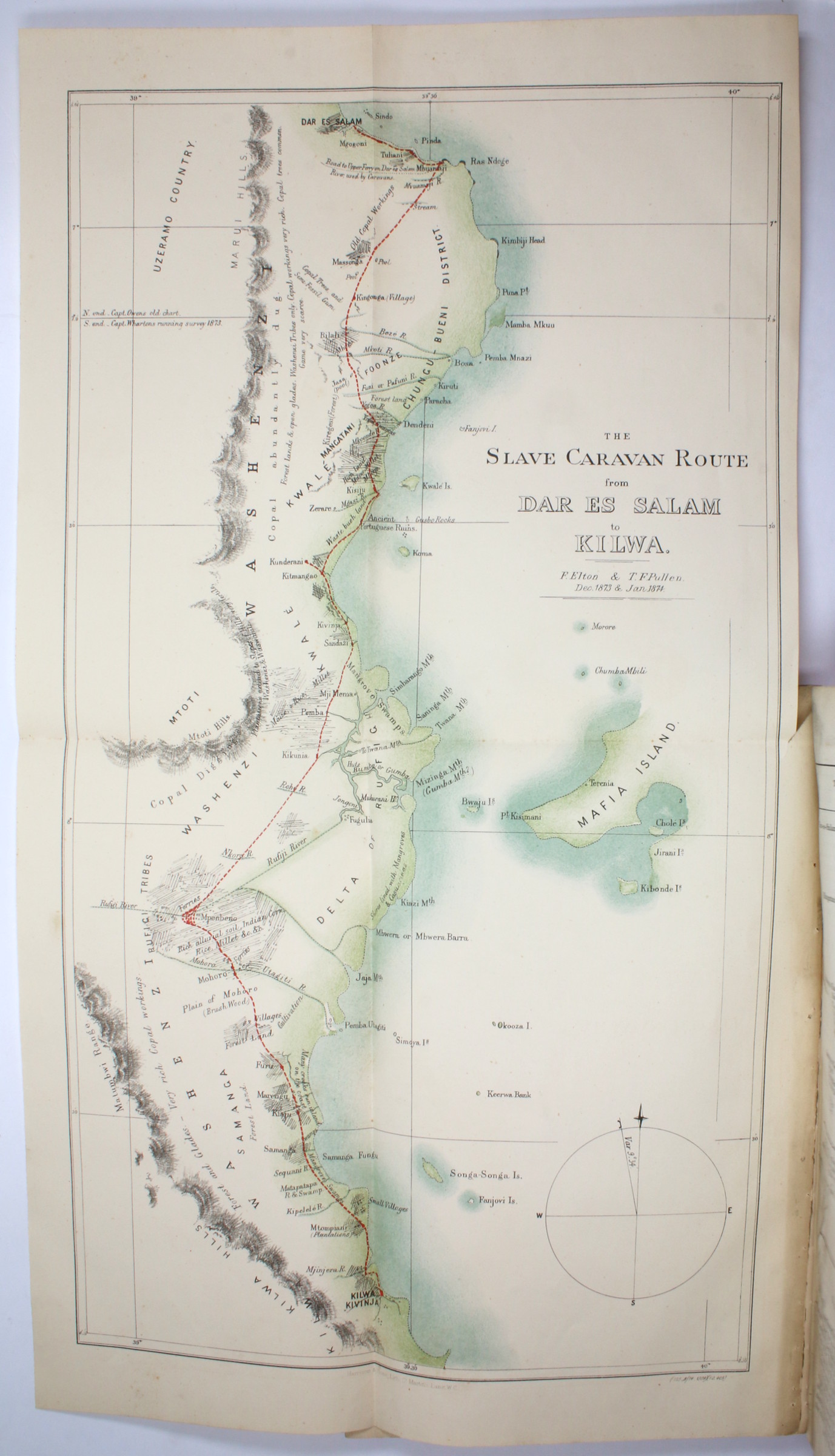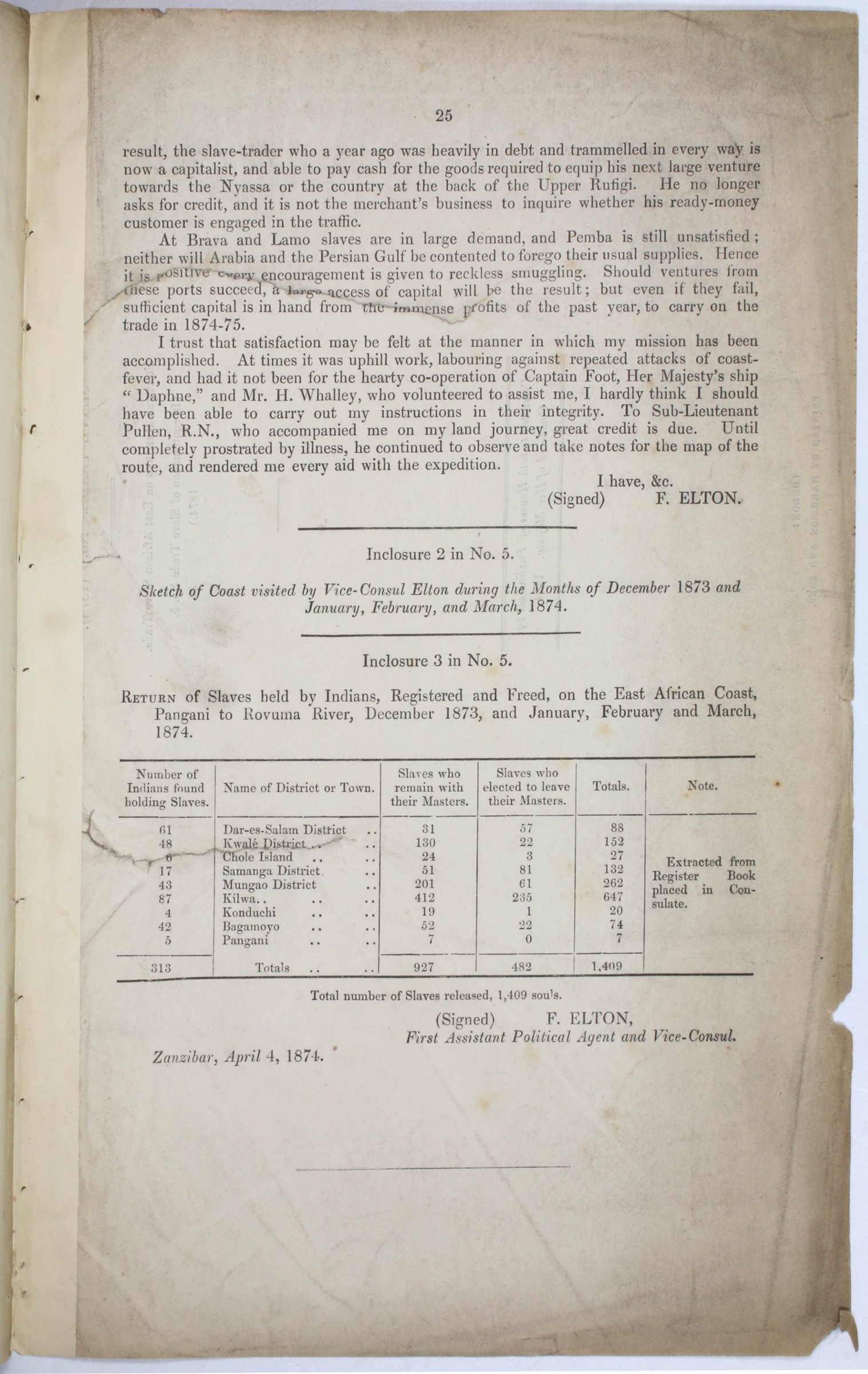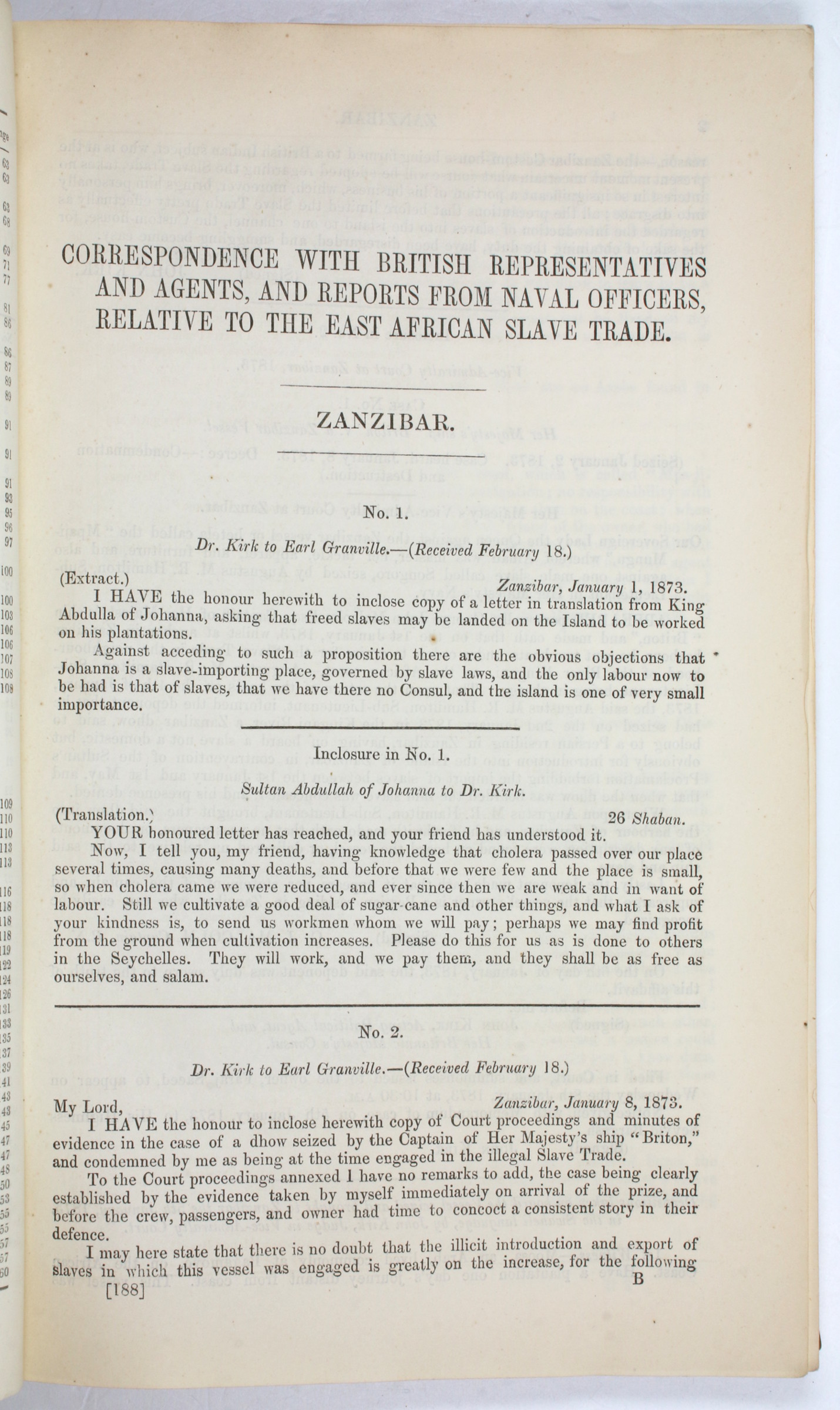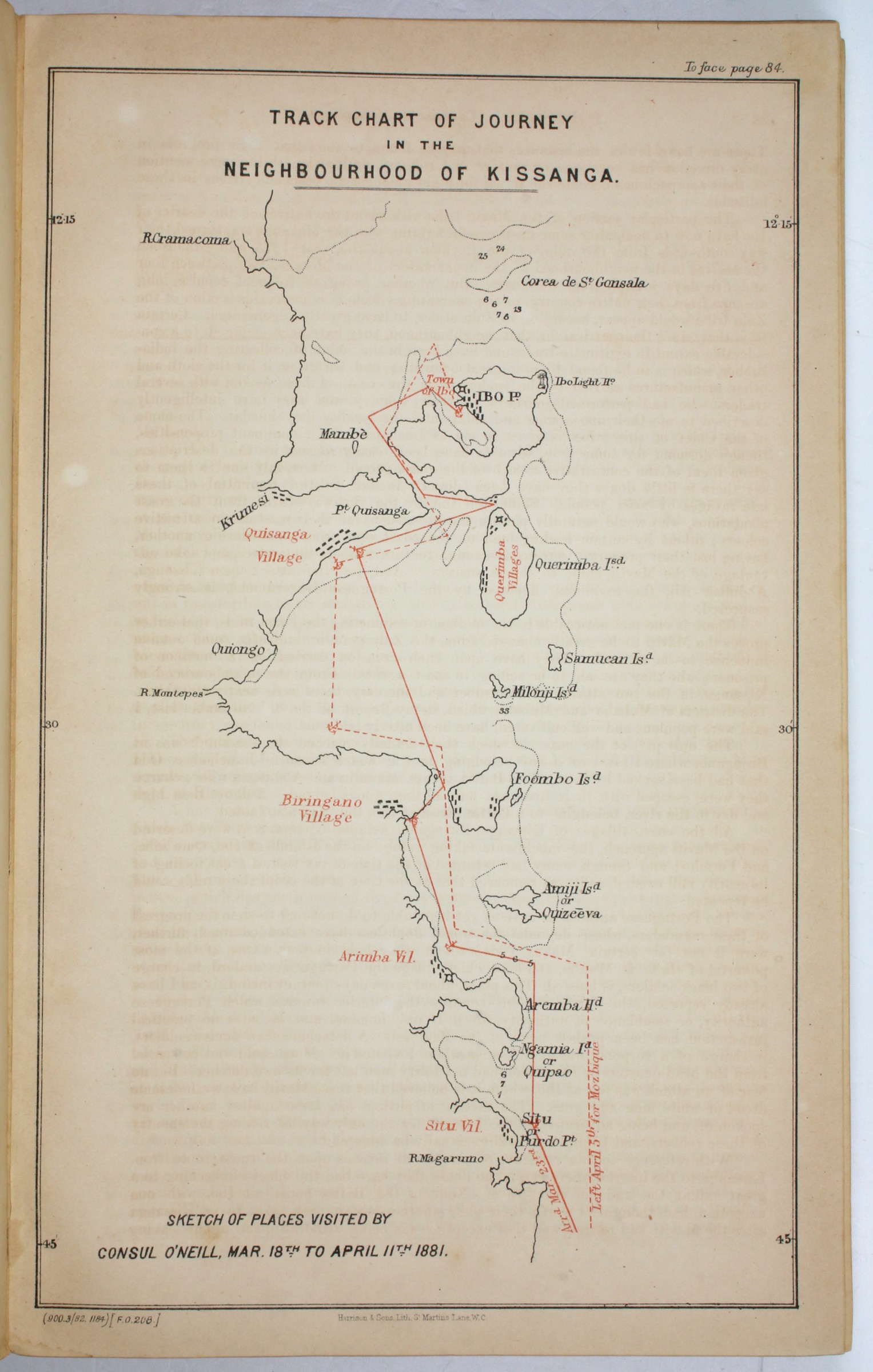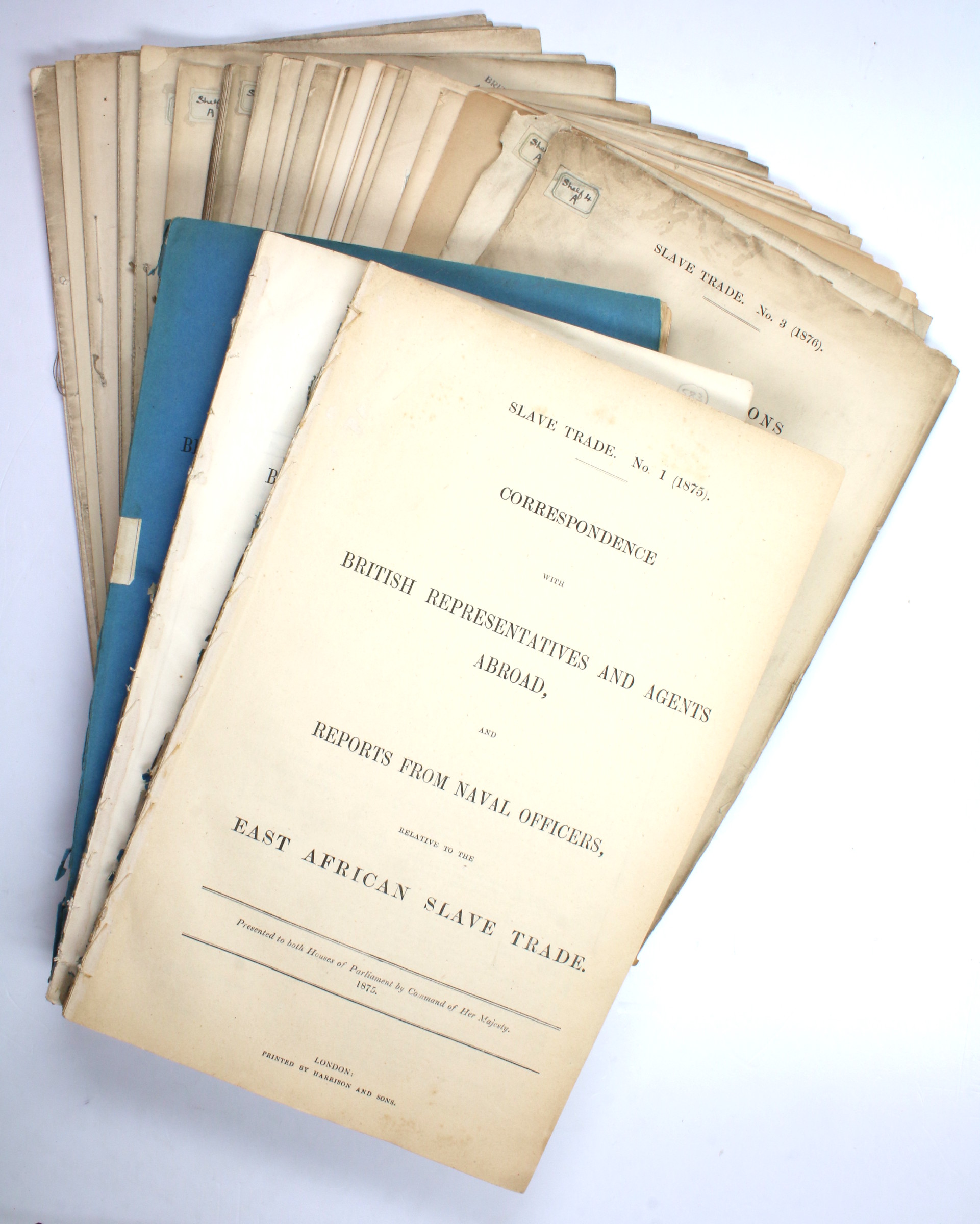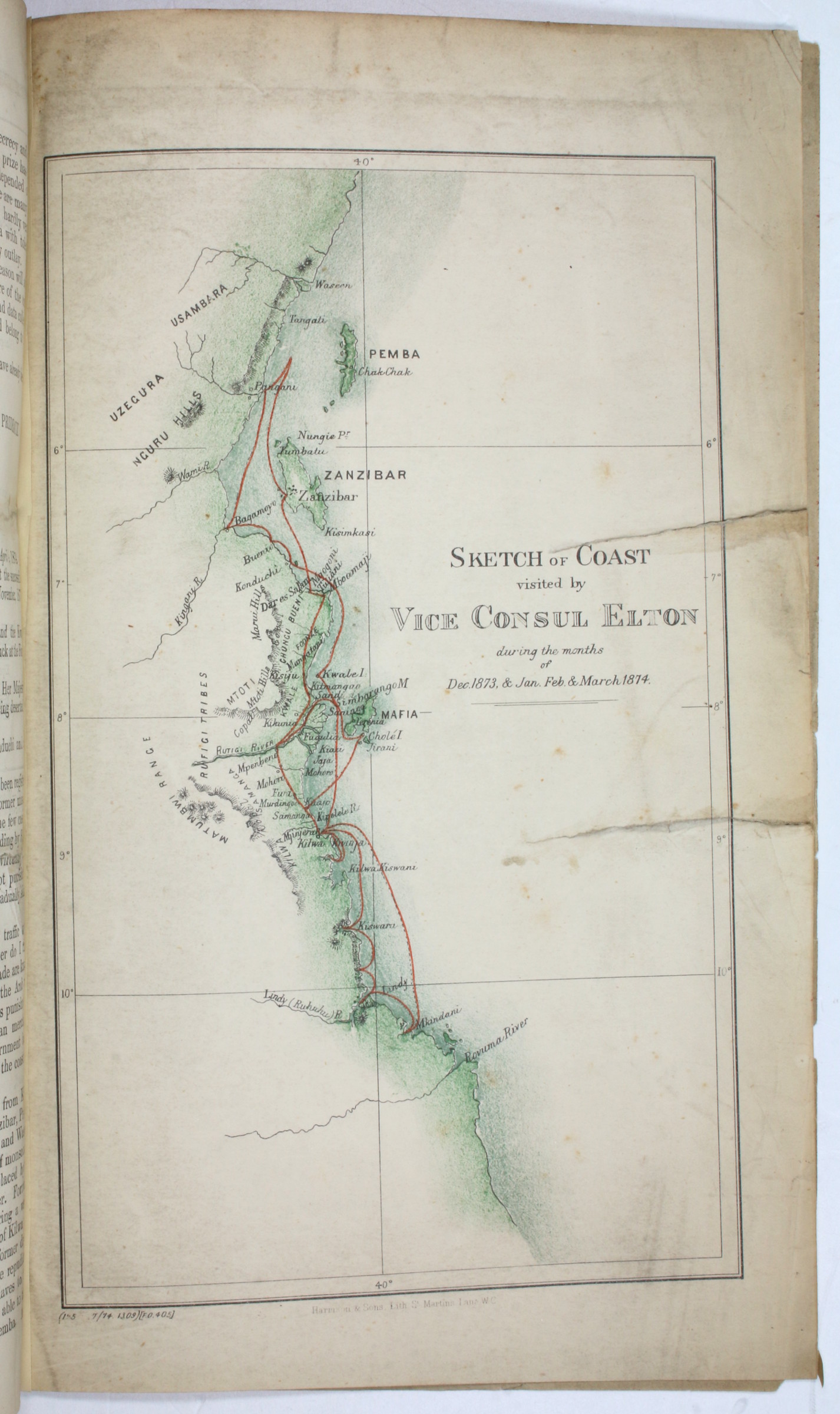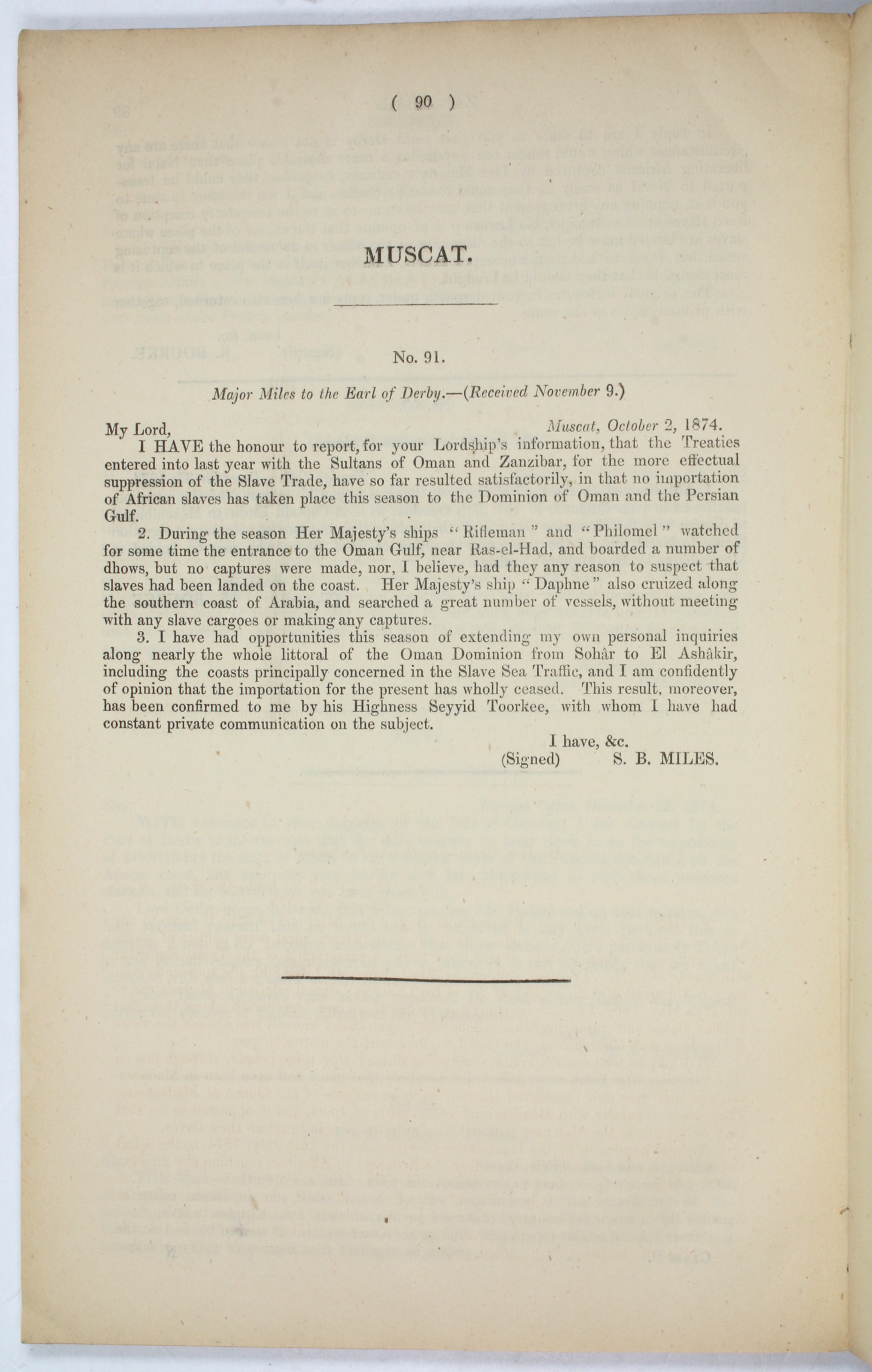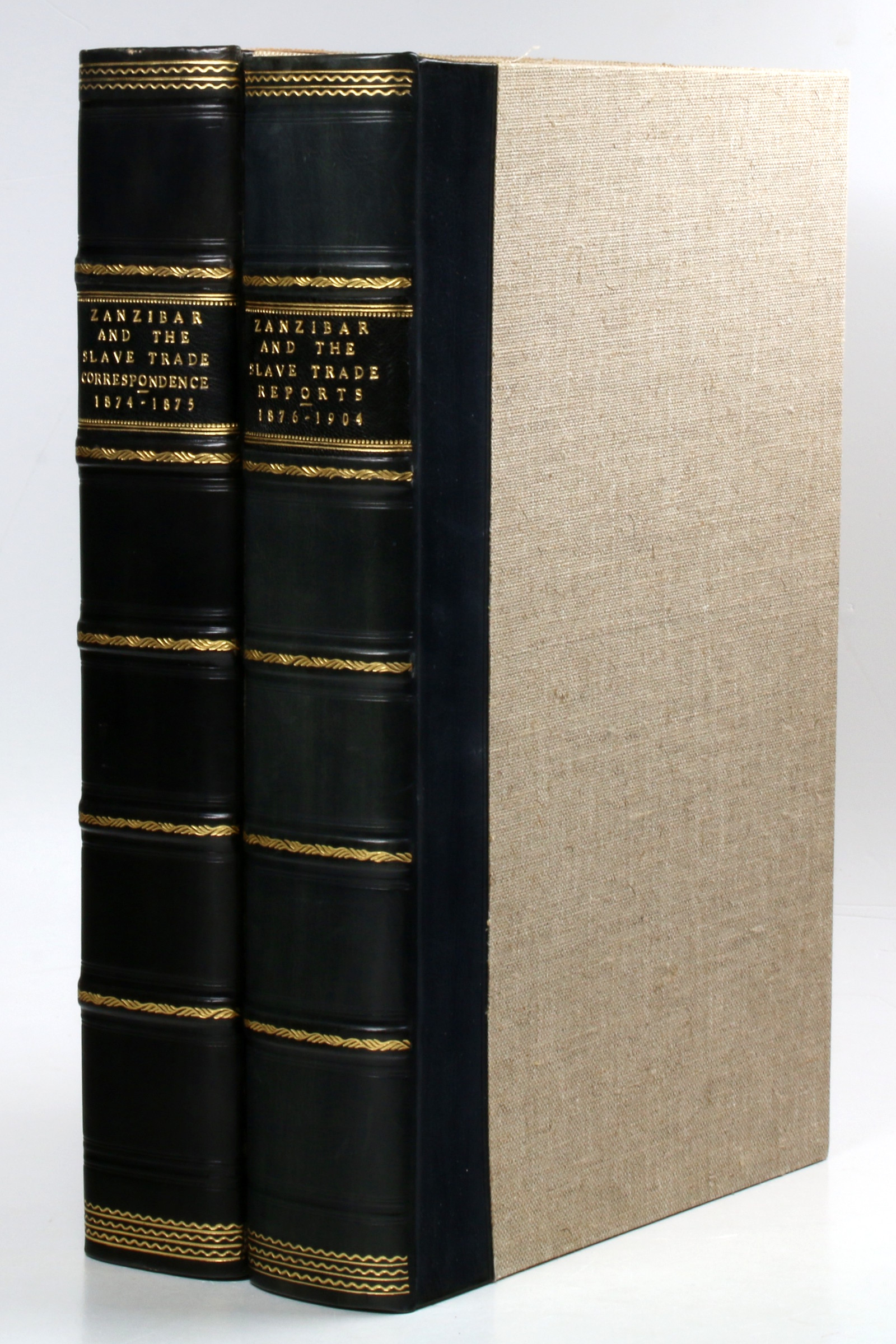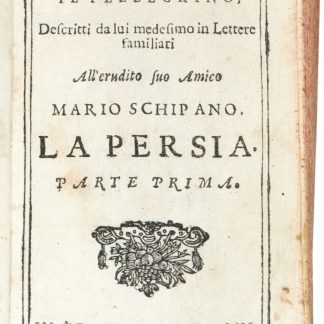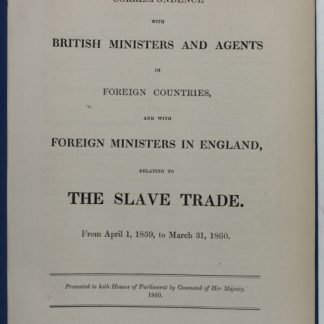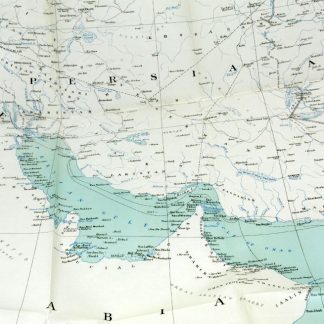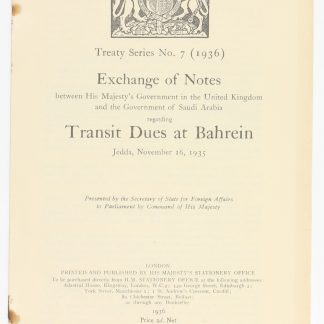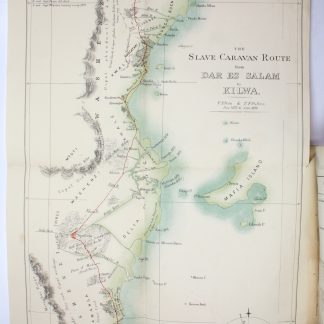Thirty years of British parliamentary papers on the suppression of the slave trade
[Zanzibar and the Slave Trade: correspondence and reports, 1874-1904].
Folio. A total of 24 reports. With 2 colour lithograph maps, one folding. Disbound from volumes of parliamentary papers, individually stitched. Housed in two grey cloth clamshell boxes with black leather spines, titled in gilt.
€ 25,000.00
A collection of rare British parliamentary papers and correspondence with local agents and officers on the slave trade, of immense importance to the history of slavery and its suppression in Zanzibar, East Africa, Oman, and the Gulf.
Reports, communications, and treaties provide the backdrop for thirty years of history, including the text of two treaties closed between Britain and Sultan Barghash bin Said of Zanzibar regulating the powers of British officials to seize ships suspected of carrying on the slave trade, two colour lithograph maps (one folding) showing "The slave caravan route from Dar es Salam to Kilwa" and a "Sketch of coast visited by Vice Consul Elton", and a paper on the traffic of slaves in Zanzibar, with a report on slaves there kidnapped, with reference to "the Arabs who come down from the Gulf of Oman and the Persian Gulf with a view to procuring slaves".
Reports give detailed information from men on the spot; one titled "Slave Trade No. 7 (1874). Further Reports on East African Slave Trade" describes how "At Brava and Lamo slaves are in large demand, and Pemba is still unsatisfied; neither will Arabia and the Persian Gulf be contented to forego their usual supplies" (p. 25). Yet, a year later, the British are much more confident: "Slave Trade No. 1 (1875). Correspondence with British Representatives and Agents Abroad" states firmly that "the Treaties entered into last year with the Sultans of Oman and Zanzibar, for the more effectual suppression of the Slave Trade, have so far resulted satisfactorily, in that no importation of African slaves has taken place this season to the Dominion of Oman and the Persian Gulf". The author adds, "I am confidently of opinion that the importation for the present has wholly ceased. This result, moreover, has been confirmed to me by his Highness Seyyid Toorkee" (p. 90). The latter refers to Sultan Turki bin Said (1832-88), fifth son of Said bin Sultan.
The papers cover an immense range of geography and politics. One paper might make references to slavery on Pemba and dhows trading from the Arabian Gulf and Oman, and the liberation of several slaves; another gives reports of fugitive slaves having claimed protection from British vessels in the Gulf (Bandar Abbas, Bandar Lengeh) and off Muscat, and others of the ramifications, both legal and social, of the progress of the abolition of slavery and the new "free" status of former Zanzibar slaves after their emancipation.
A detailed list is available upon request.
1. One report (Africa No. 4 [1901], Correspondence respecting Slavery and the Slave Trade in East Africa and the Islands of Zanzibar and Pemba) features the stamp of the British and Foreign Anti-Slavery Society on its title-page. 2. The clamshell boxes with the monogrammed ExLibris (HW) of the last owner, who assembled the present collection.
Disbound from one or more volumes of parliamentary papers. Occasional chipping or repairs, but altogether in very good condition.
Bennett 498, 499, 500, 501, 502, 510, 2240, 2243, 2244.

